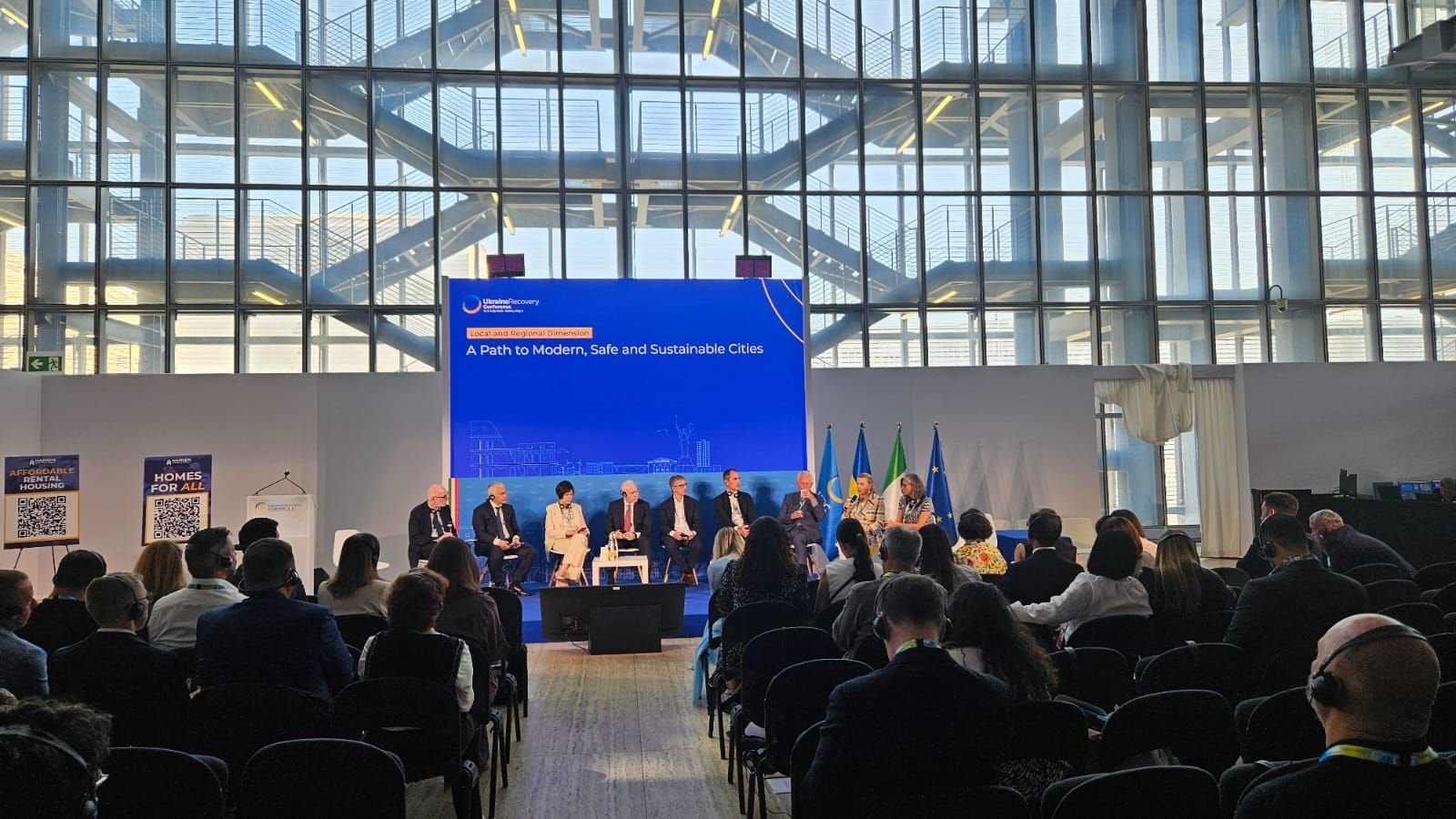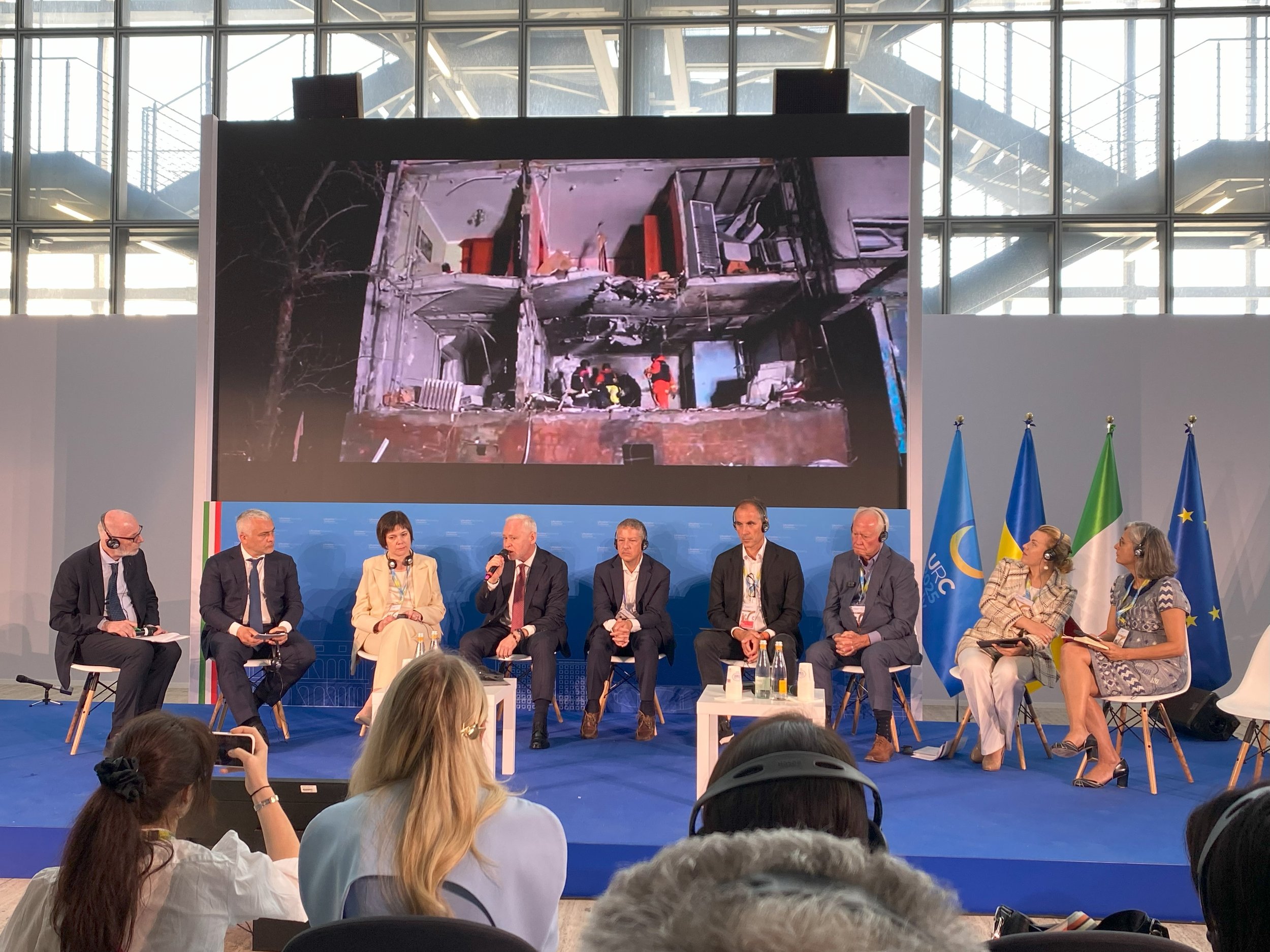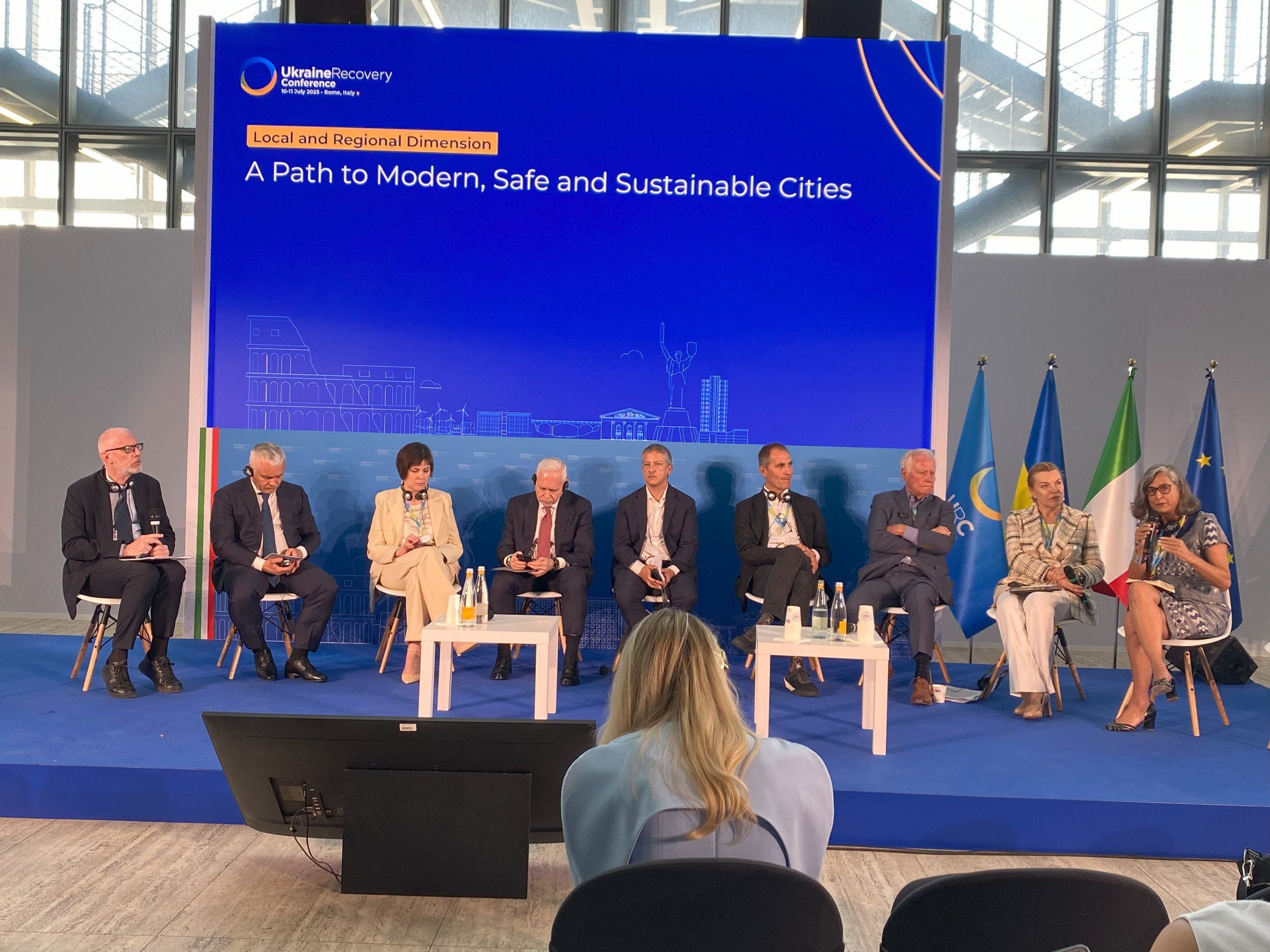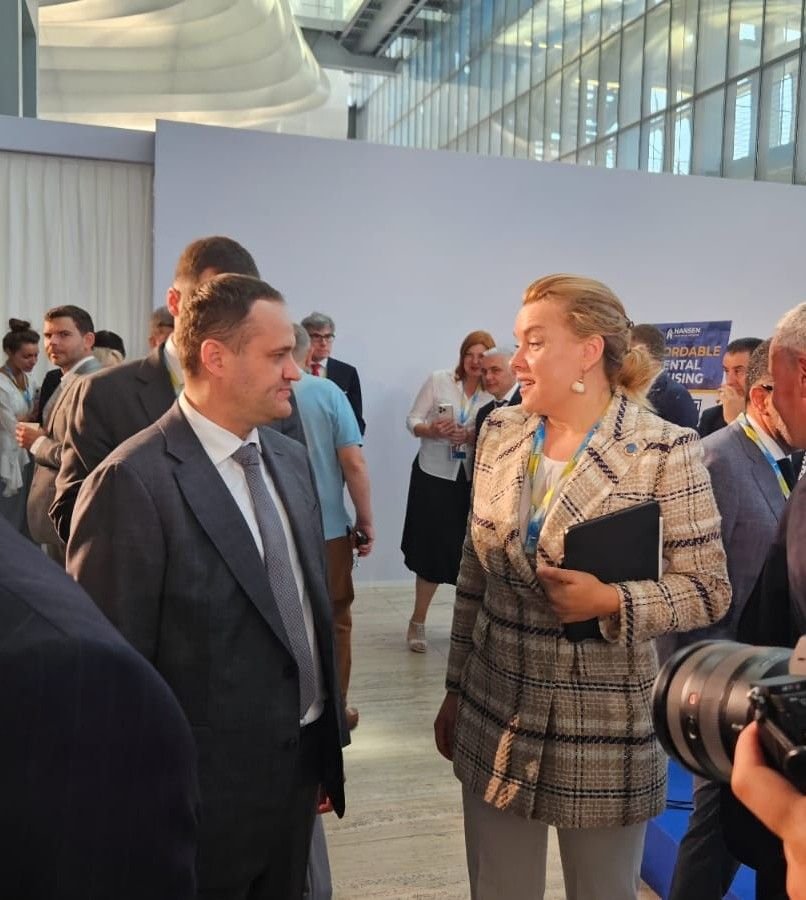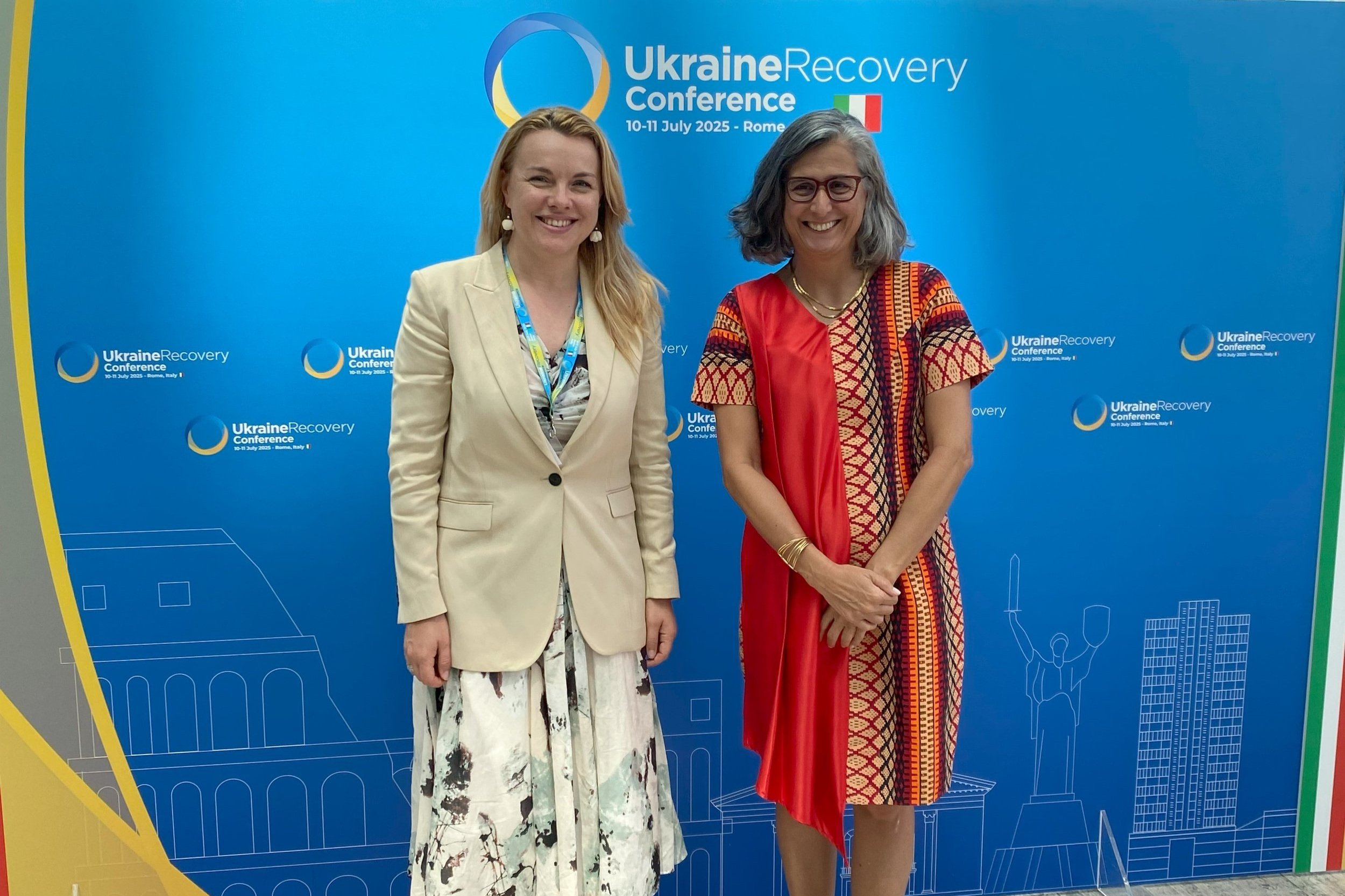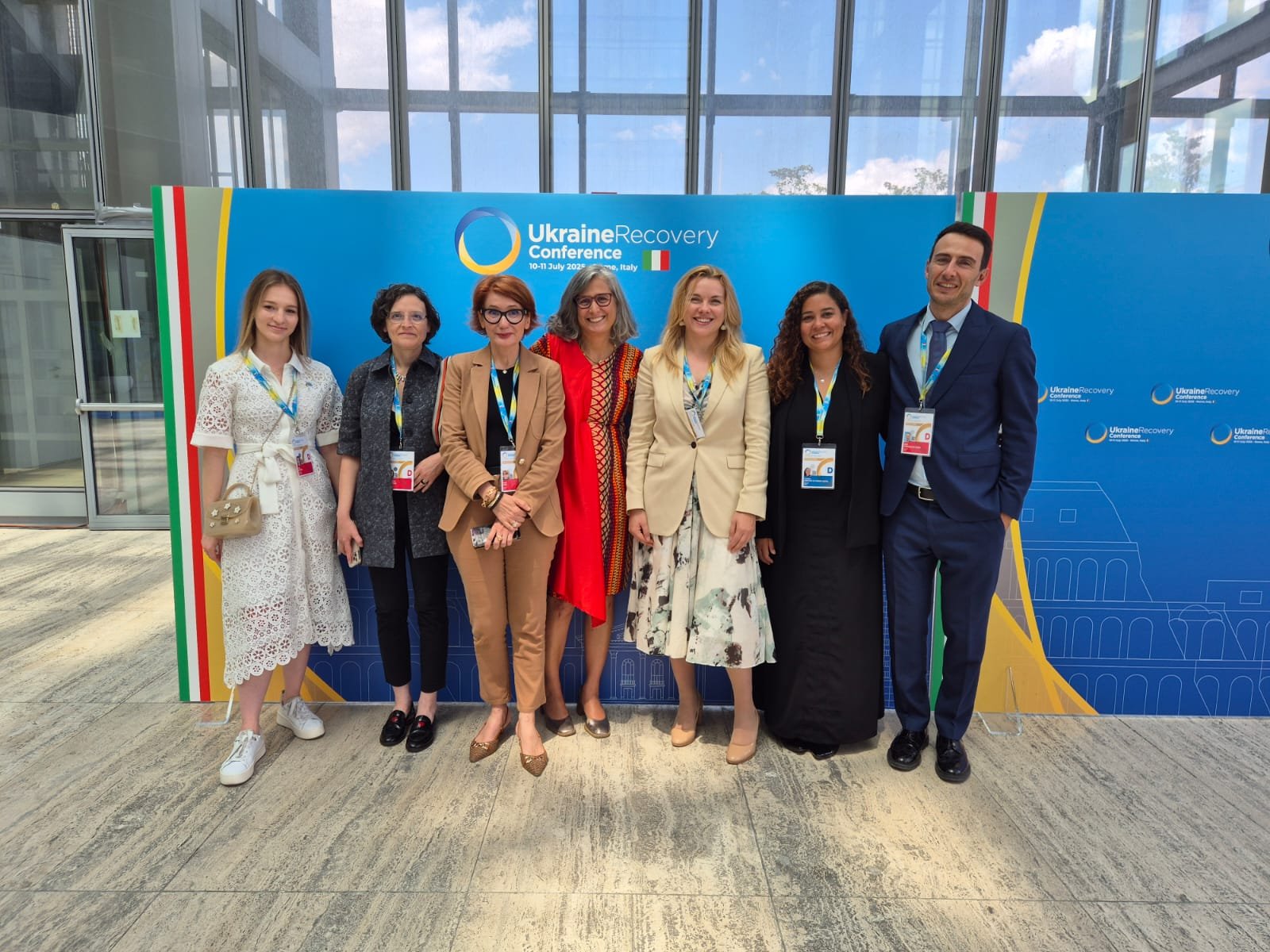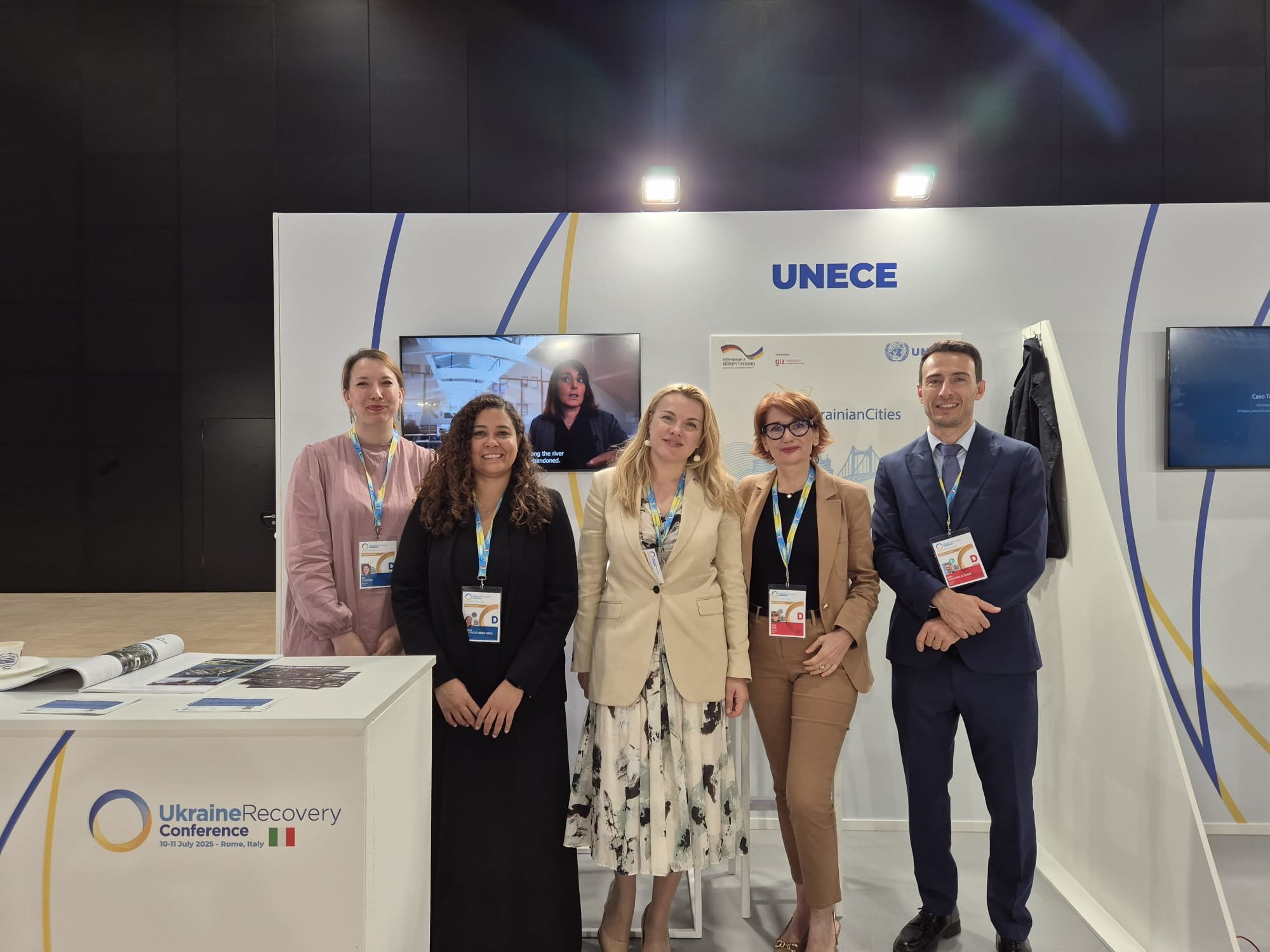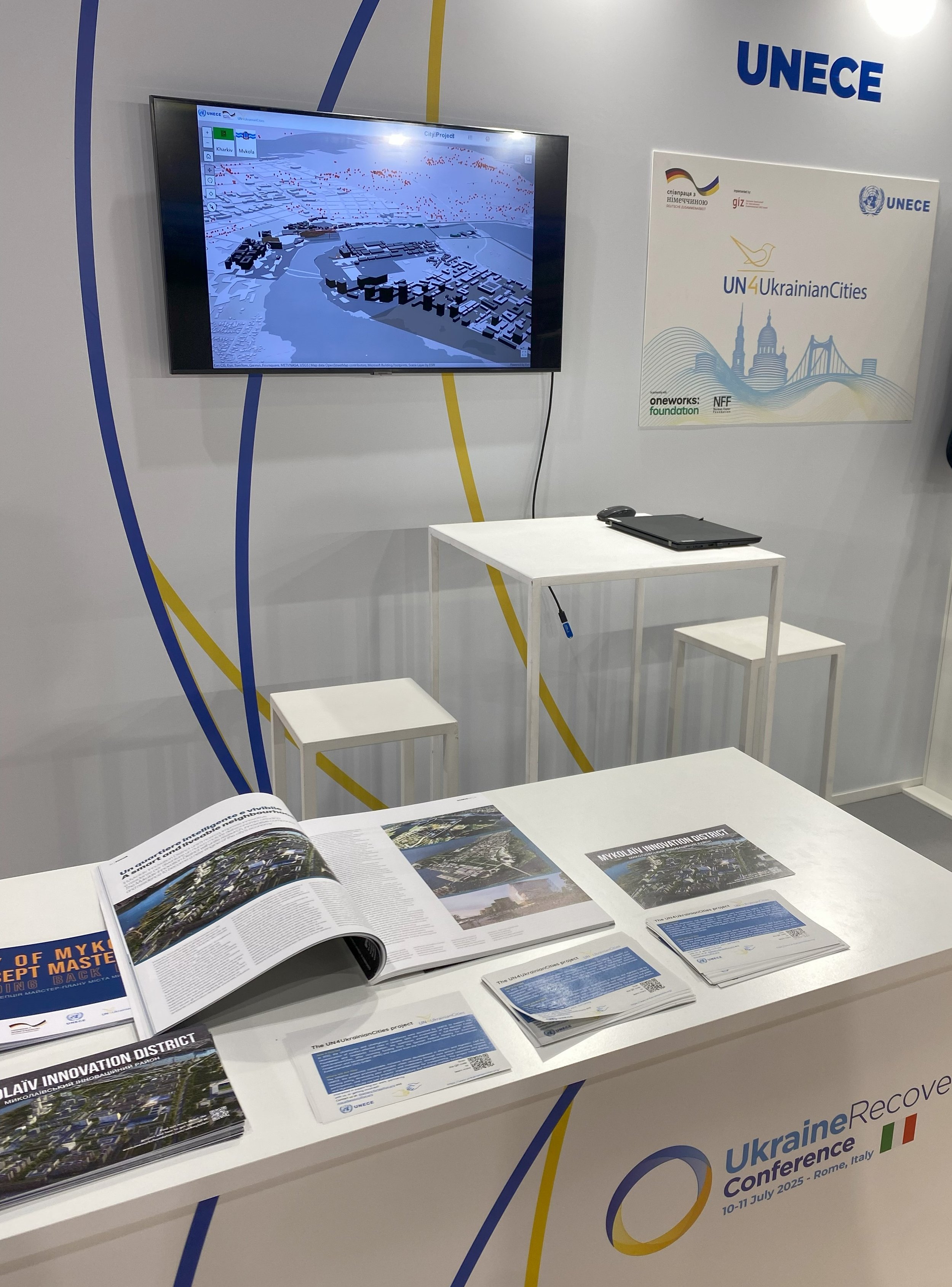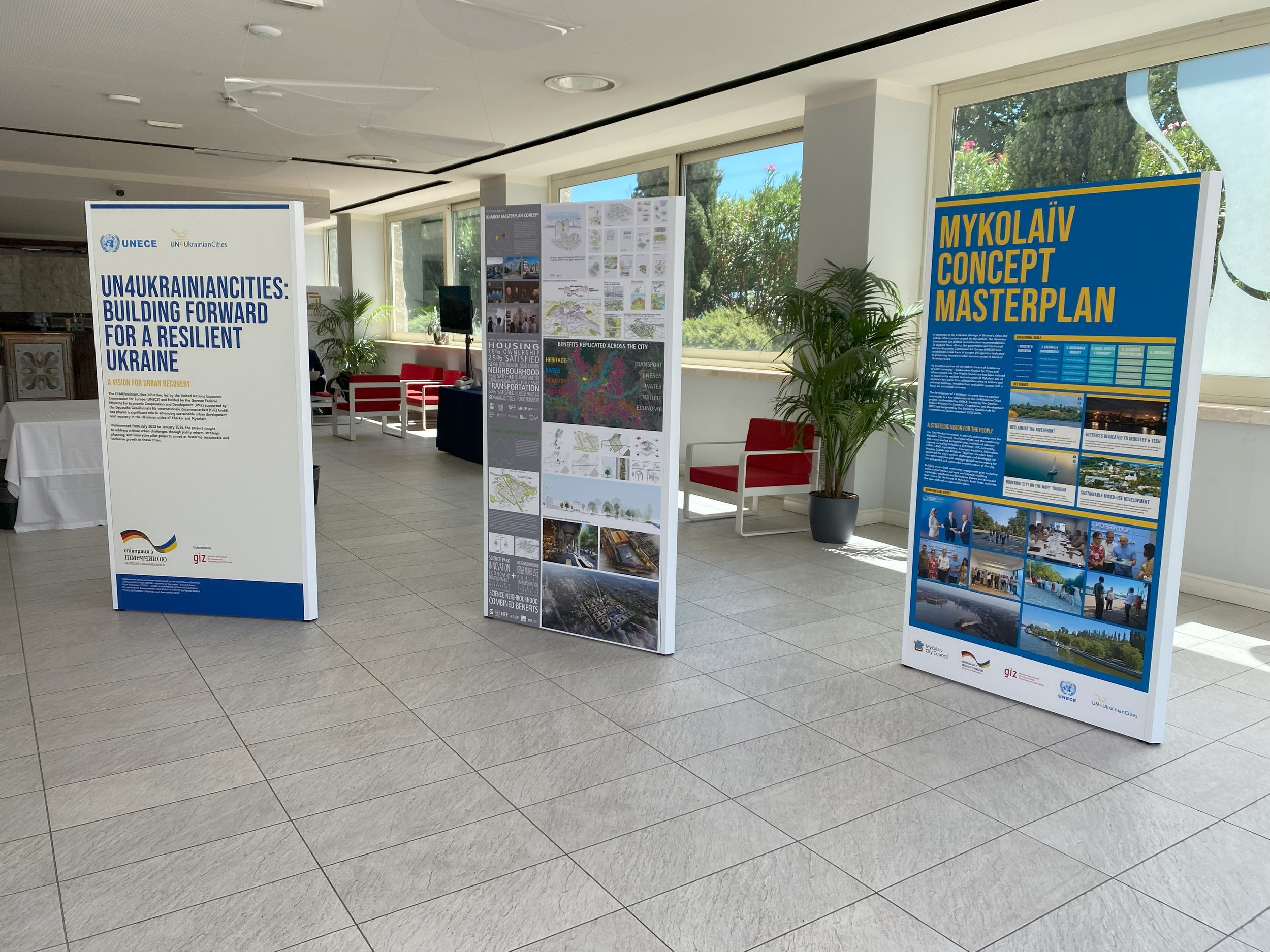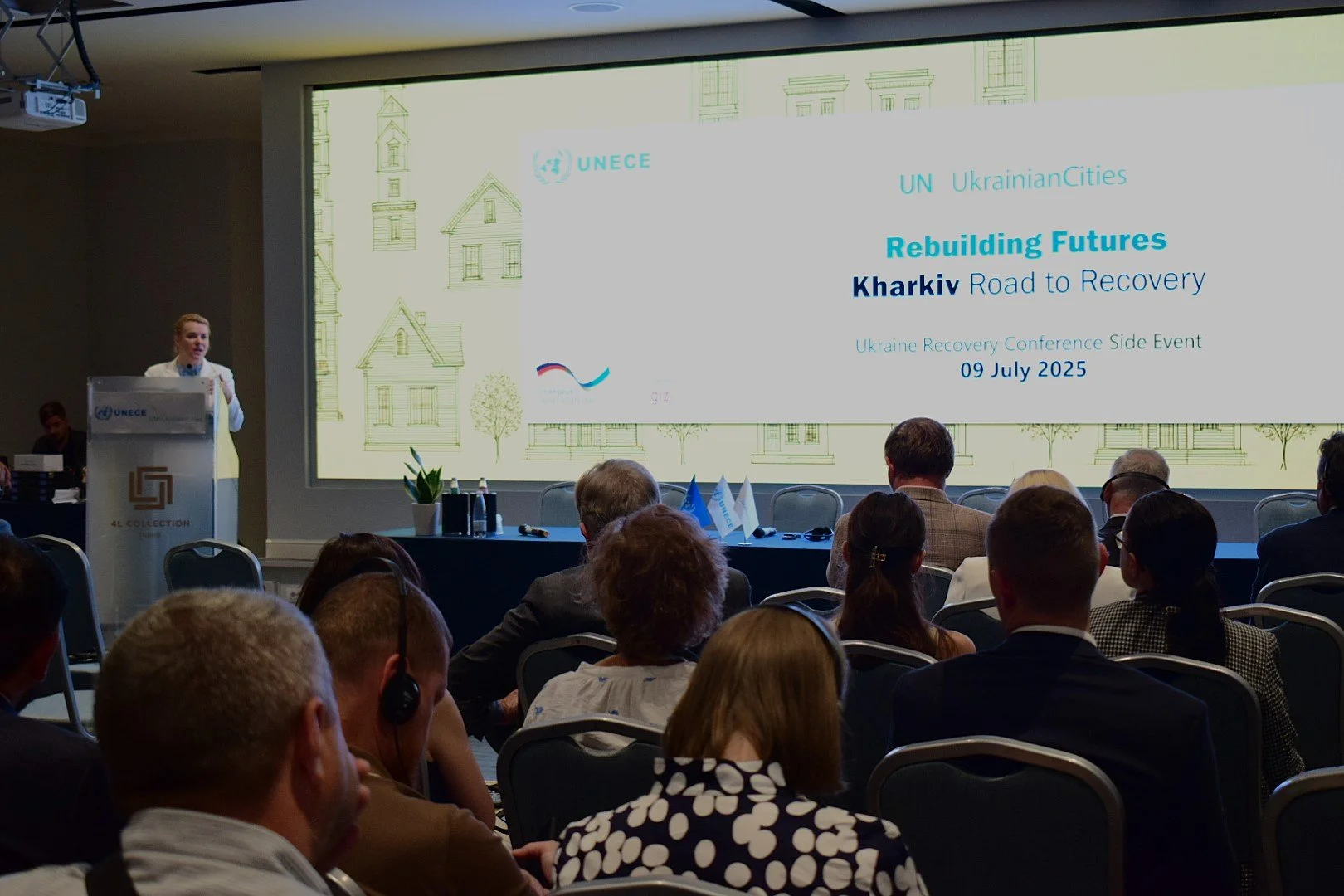Rebuilding Futures: UN4UkrainianCities at Ukraine Recovery Conference (URC 2025)
As the global spotlight turned to the Ukraine Recovery Conference (URC) in Rome, the UN4UkrainianCities initiative, led by UNECE and supported by Germany’s Federal Ministry for Economic Cooperation and Development (BMZ) and support from GIZ, showcased bold visions for urban regeneration in two of Ukraine’s most affected cities: Kharkiv and Mykolaiv.
Held on the sidelines of the URC, the “Rebuilding Futures: Road to Recovery” event on 9 July, brought together over 80 international and Ukrainian stakeholders for two dynamic sessions dedicated to presenting flagship recovery projects and fostering new partnerships.
Kharkiv: From Vision to Action
The afternoon of the 9 July, opened with a dedicated session on Kharkiv Road to Recovery, highlighting the city's path from war-damaged infrastructure to a future shaped by innovation, resilience, and green urban design.
Ms. Tatiana Molcean, Executive Secretary of UNECE, took part in the opening of the side event alongside a distinguished panel of speakers, including Mr. Oleksandr Korniyenko, First Deputy Chairman of the Verkhovna Rada; Mr. Oleksii Riabykin, Deputy Minister for Communities and Territories; Mr. Robert Kunne, GIZ Cluster Coordinator Energy and Climate and Mr. Luca Bertalot, Secretary General from European Mortgage Federation. In her address, Ms. Molcean emphasized that “recovery is not just about physical rebuilding, it is about building trust, dignity, and aspiration.”
Central to the discussion was the Science Neighborhood pilot project, developed in partnership with the Norman Foster Foundation (NFF). Architect Diego López of NFF presented the project’s vision for transforming Kharkiv’s former Barabashova market into a mixed-use innovation hub, bringing together education, research, housing, and public space. Mayor Ihor Terekhov detailed the city’s master plan and housing initiatives, complemented by a presentation from the UK Department for Transport on integrated mobility strategies.
The second panel focused on resilient utilities, a backbone of urban sustainability. Key highlights included:
The signing of agreements with EBRD, UNICEF, UNEP, and others to support Kharkiv’s water and energy infrastructure.
Presentations on sustainable water and heat strategies, with contributions from France, JICA, UNOPS, and the Energy Community Secretariat.
A video showcase of current conditions and forward-looking recovery roadmaps by Kharkivvodokanal and Kharkiv Heating Networks.
“We are especially grateful to our international partners: UNECE, UNICEF, UNOPS, UNEP, UNDP, JICA, as well as the governments of the United Kingdom, France and Germany. We also deeply appreciate the support of international financial institutions, including the European Bank for Reconstruction and Development, the European Investment Bank, and the World Bank. Thanks to their unwavering assistance, none of the agreed projects in Kharkiv have been terminated.
I am confident that together, we will not only rebuild the city and modernize its infrastructure but also create a model of sustainable development for the whole of Ukraine.”
The session closed with a networking coffee break, setting the stage for deeper bilateral talks among donors, implementers, and local officials.
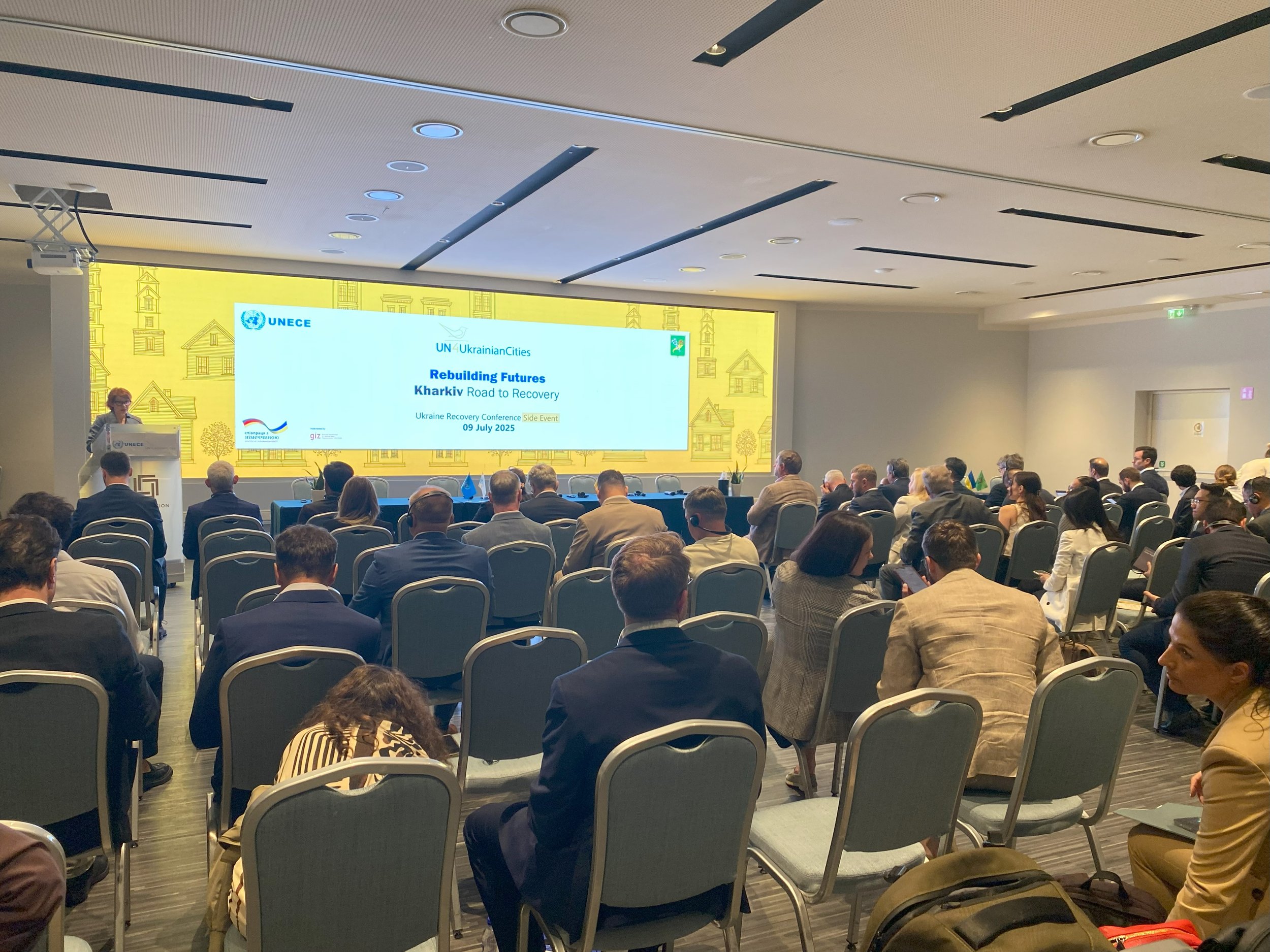
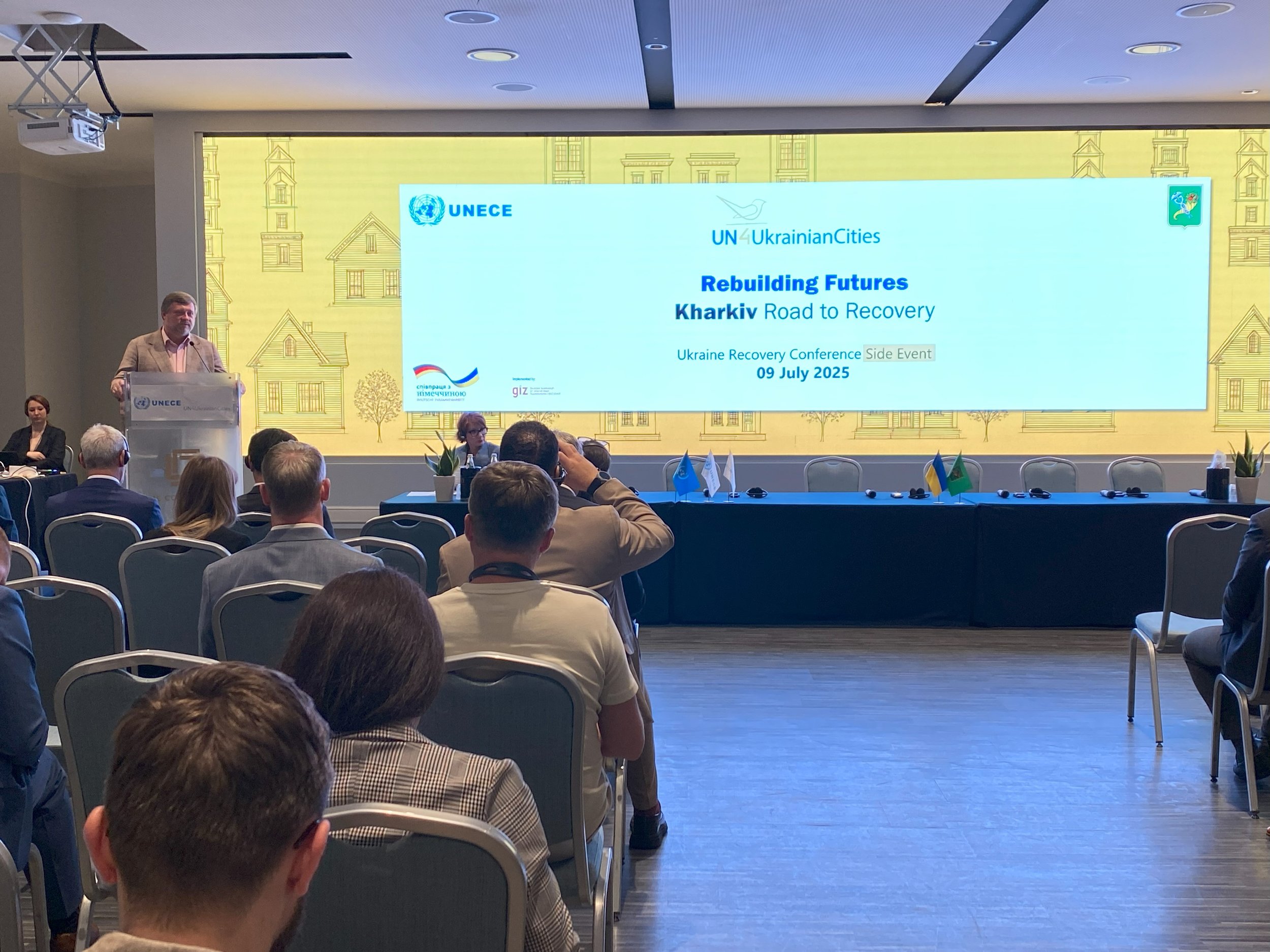
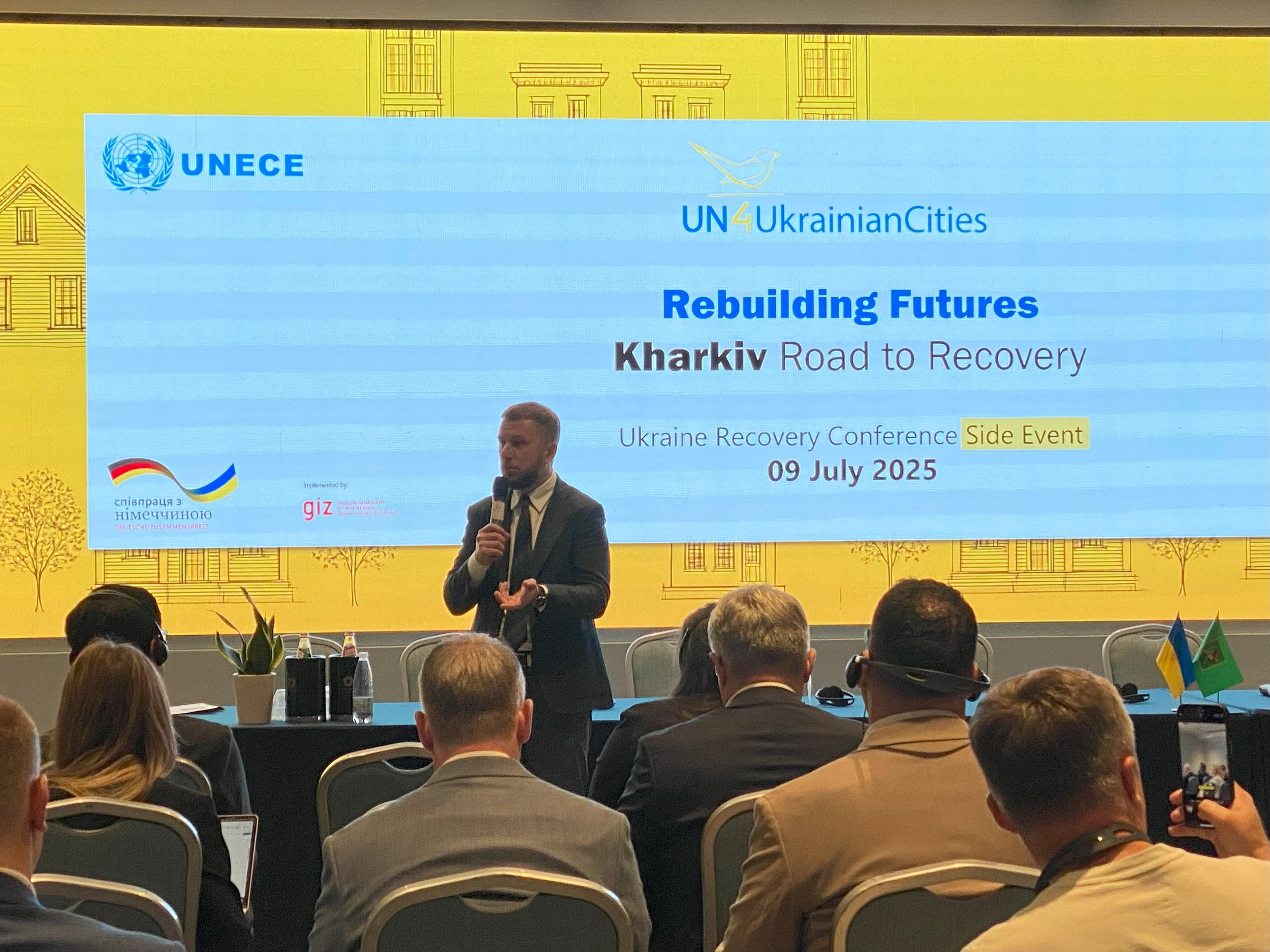

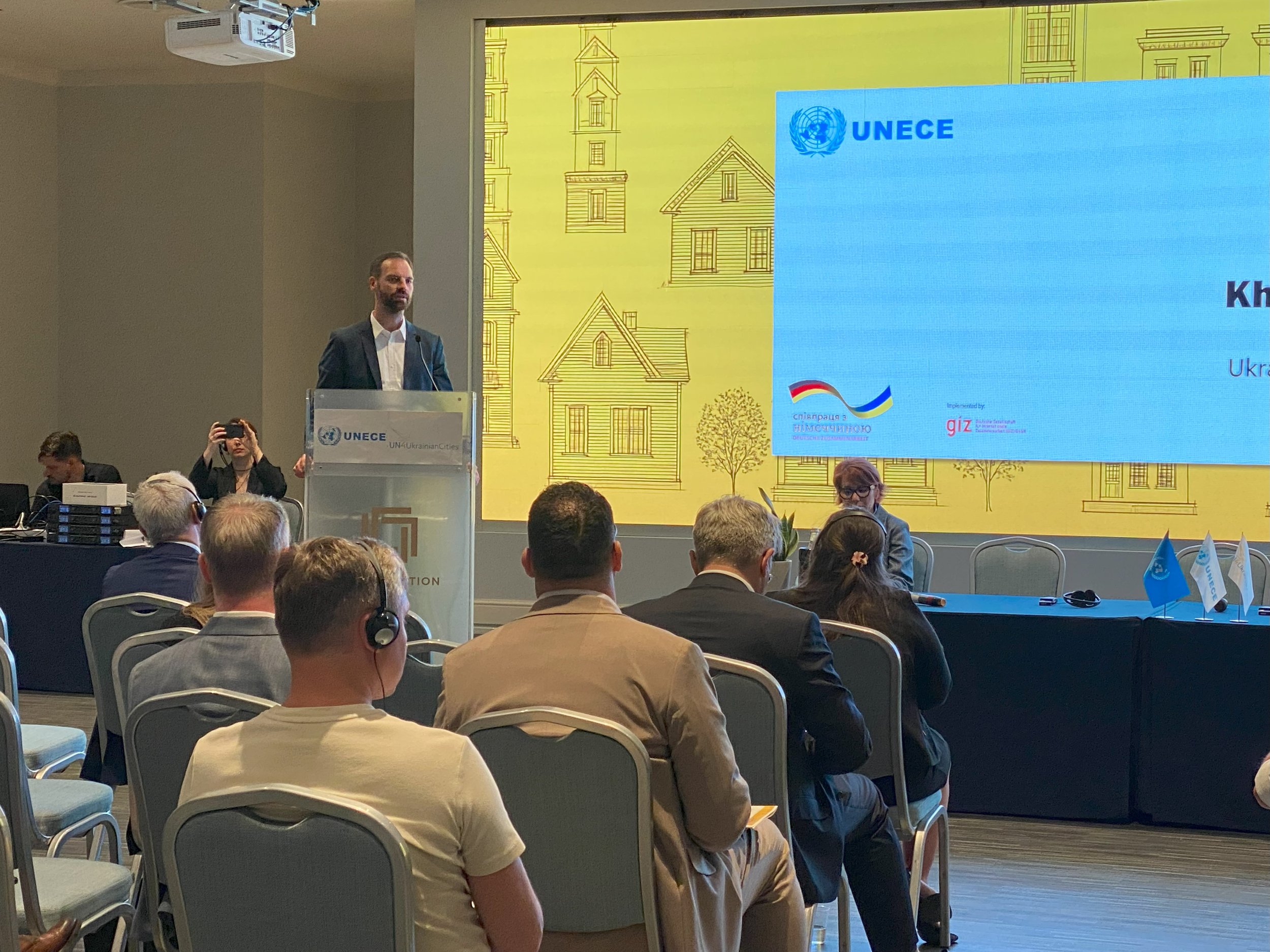
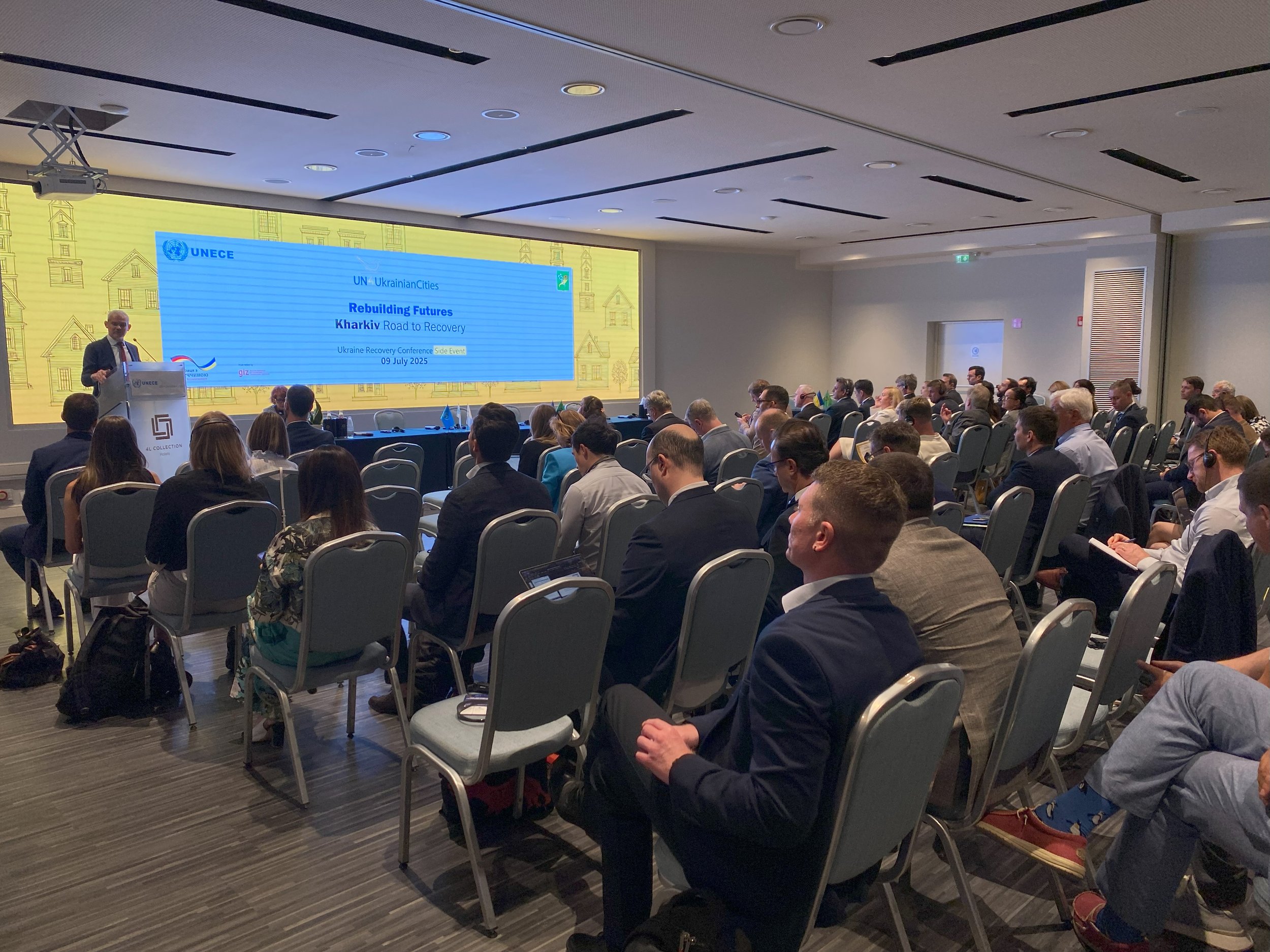
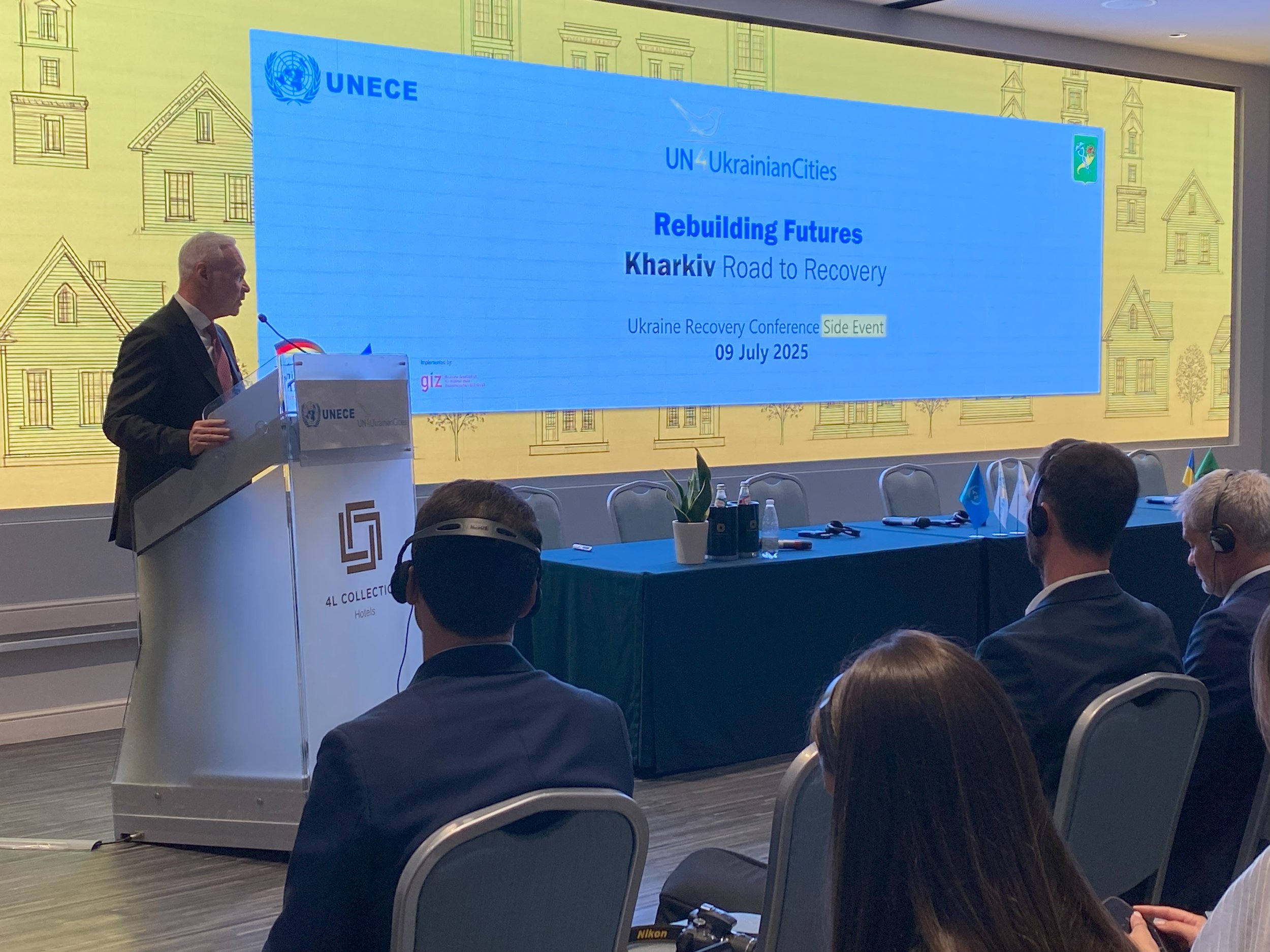
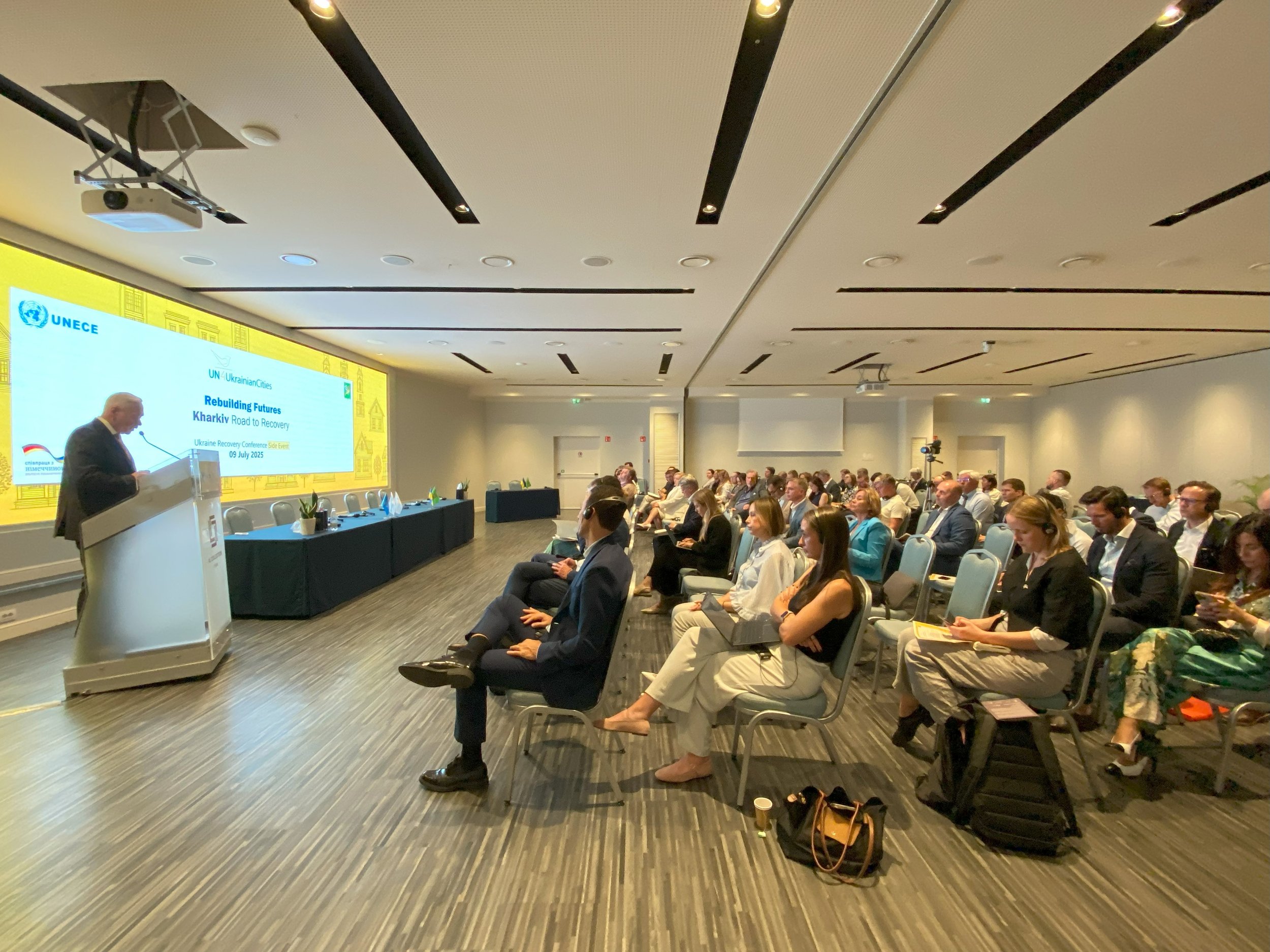
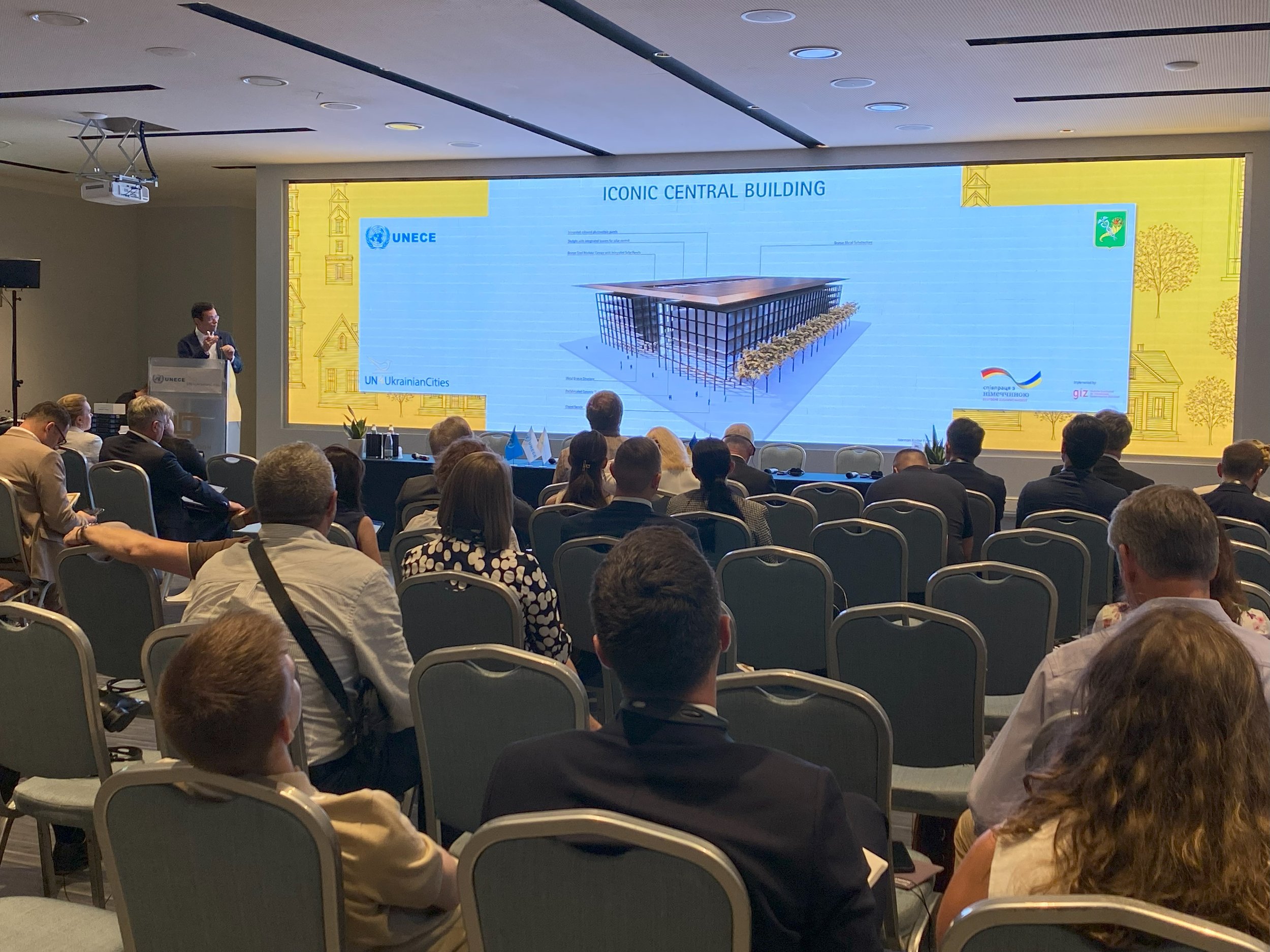
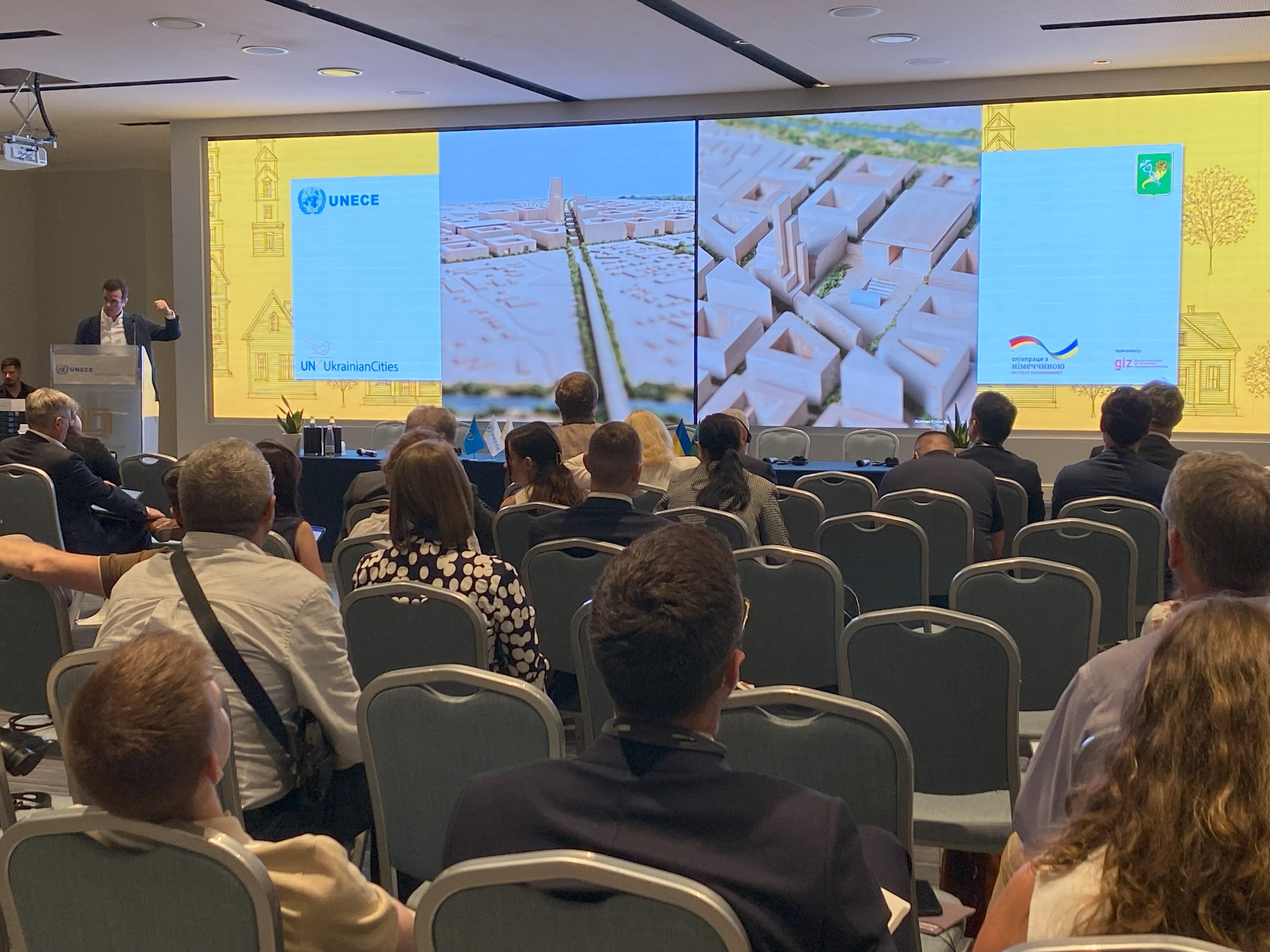
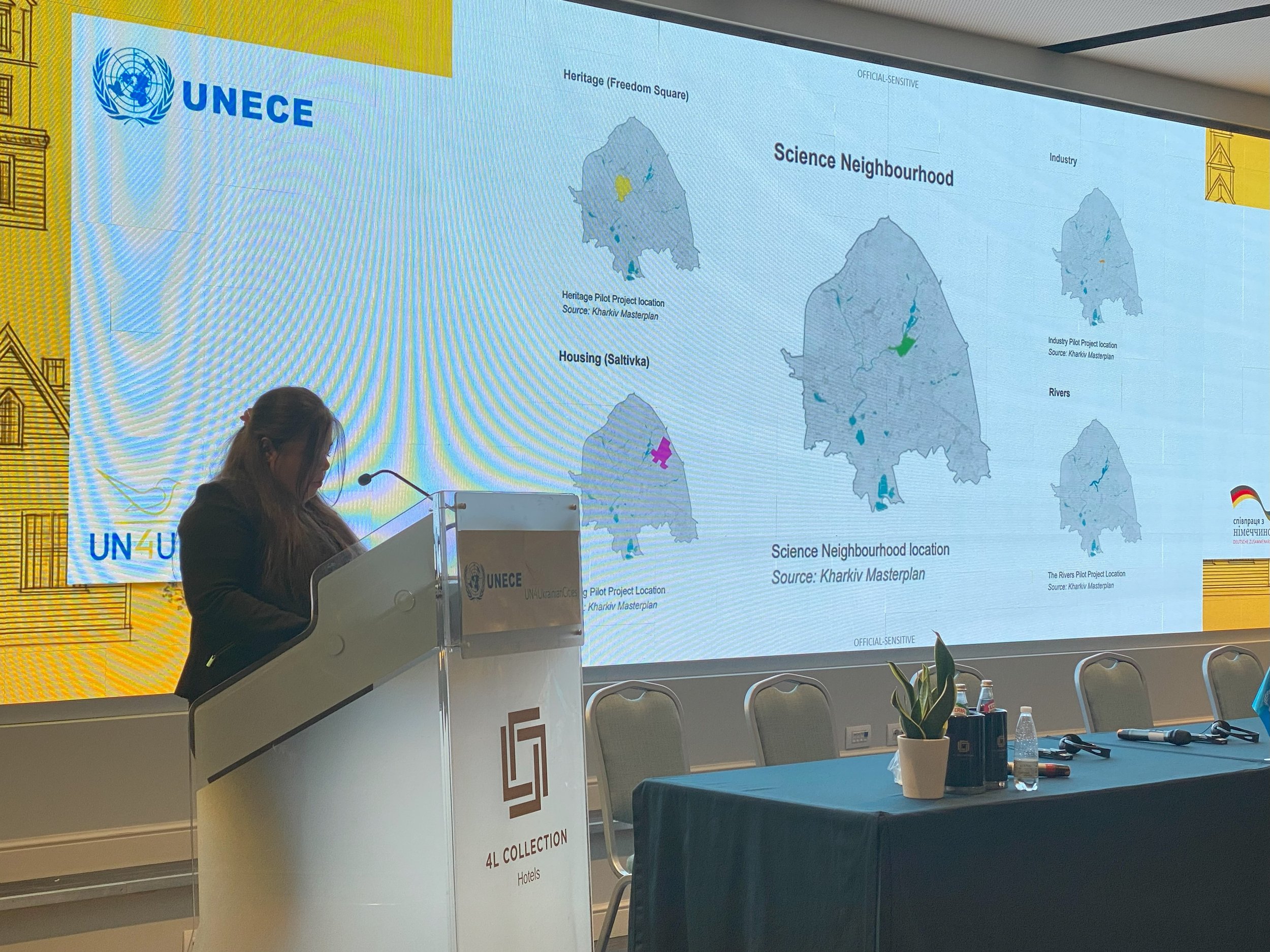
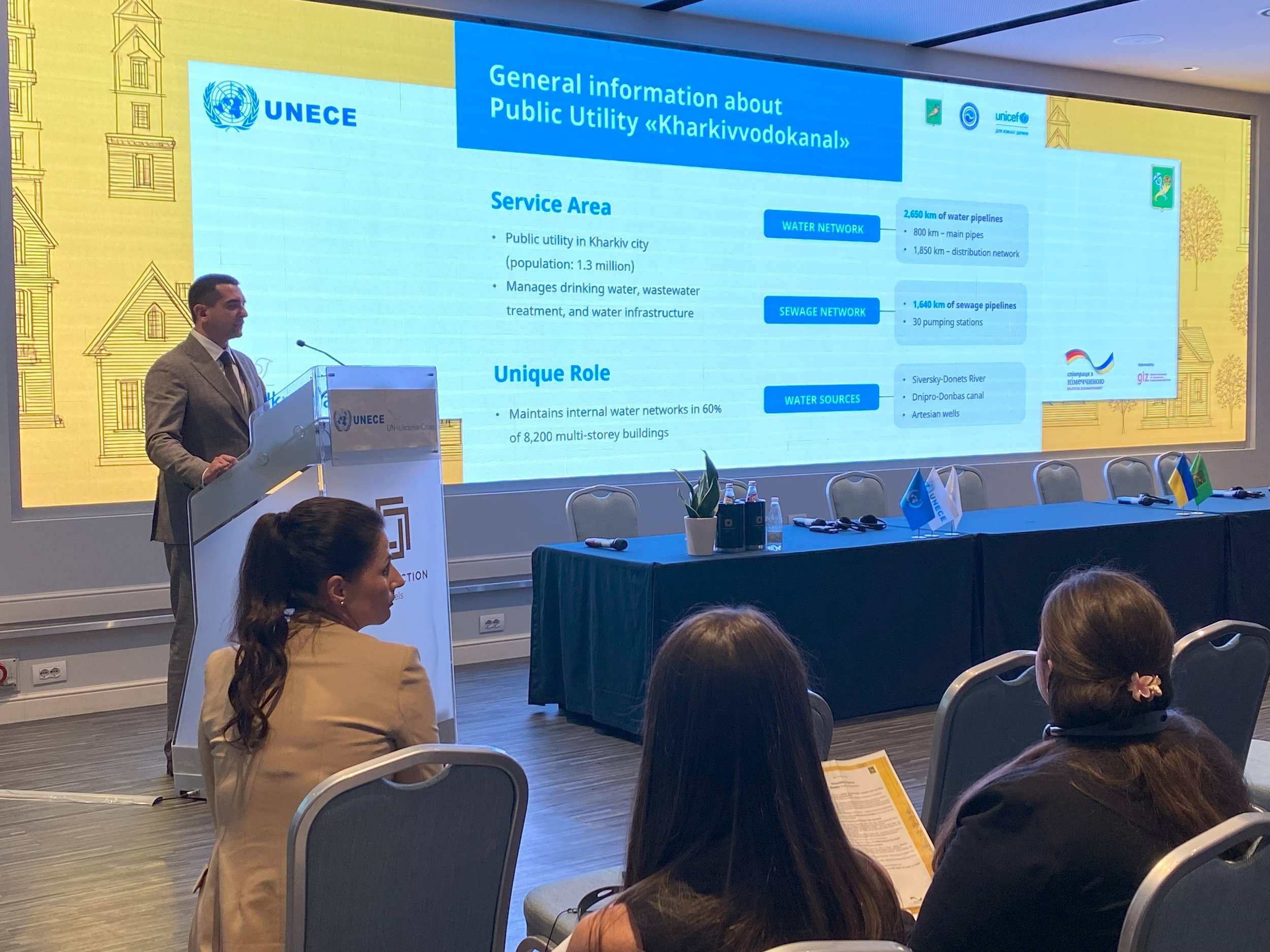
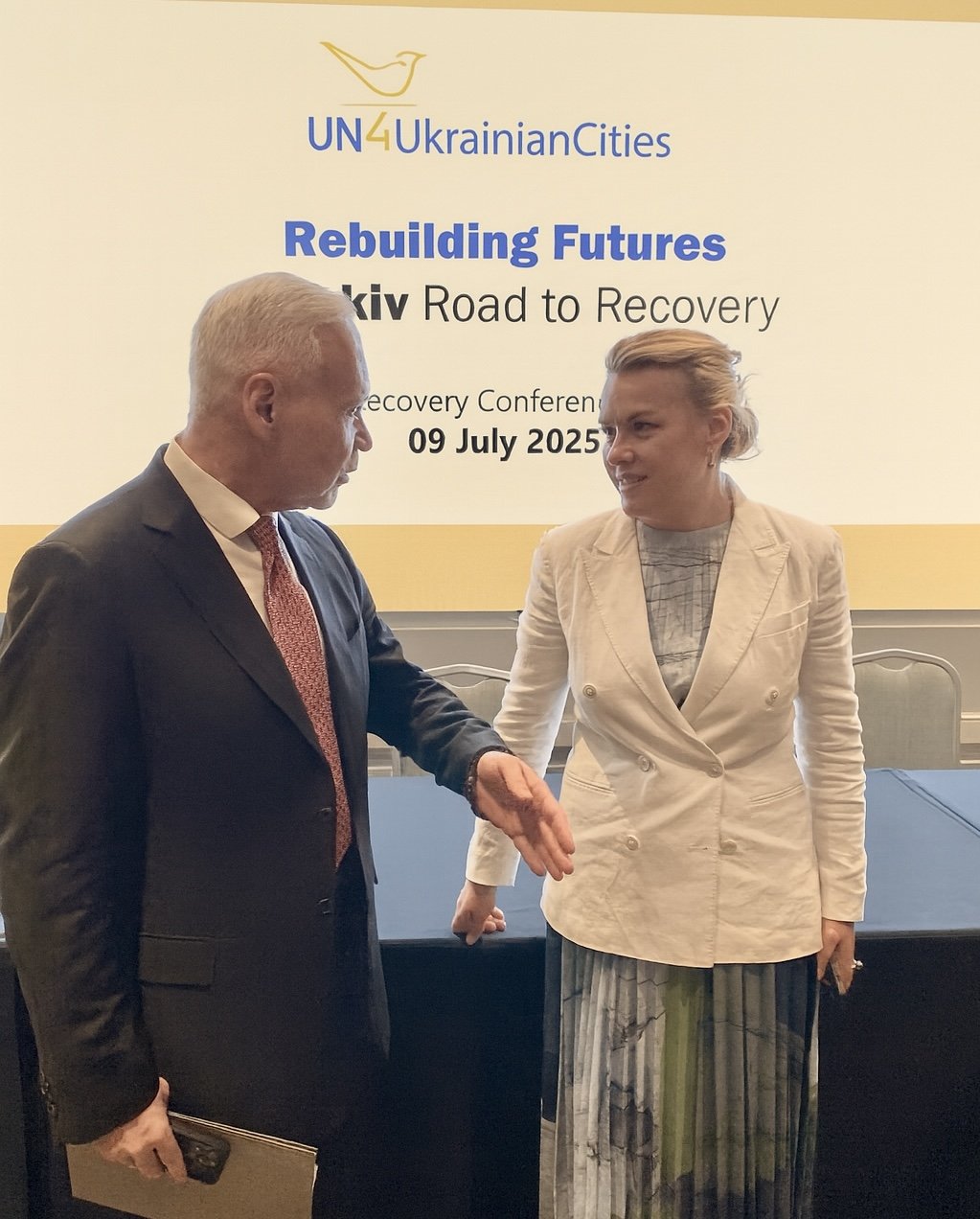
Mykolaiv: Innovation and Opportunity
The second half of the day focused on Mykolaiv Road to Recovery, positioning the city as a testing ground for bold, integrated urban development.
The session opened with a speech from the Deputy Minister for Development of Communities and Territories, Ms. Nataliia Kozlovska emphasizing that “Ukrainians are a nation that never gives up. No matter the circumstances, we keep fighting and rebuilding our country — starting today” and setting the stage for the first discussion.
The first panel spotlighted the Innovation District, a transformative pilot project co-developed by One Works Foundation. Mayor Oleksandr Syenkevych emphasized the project’s potential to anchor clean tech, affordable housing, and green mobility in a reimagined urban core linking the airport, shipyard, and city centre. Architect Giulio De Carli presented the details of the pilot, outlining the project's approach to public space design, functional zoning, and integrated mobility strategies. He also walked the audience through the proposed development phases, highlighting how the project will evolve over time.
Speakers from Hillmont, PlusValue, and the Council of Europe reflected on public-private synergies and the potential to scale the Innovation District as a model for other Ukrainian cities.
The second panel shifted focus to the Mykolaiv Industrial Park, exploring the economic engines of urban recovery. Speakers from Parliament, the City Council, UNDP, UNICEF, and academia underlined the importance of creating resilient, investable ecosystems, supported by smart infrastructure.
A major milestone was the signing of a grant agreement between the European Bank for Reconstruction and Development (EBRD) and the Mykolaiv City Council, funded by the Government of Denmark, a clear vote of confidence in the city’s recovery plan.
The evening concluded with networking cocktails, catalyzing partnerships and affirming global solidarity with Mykolaiv’s forward-looking vision.
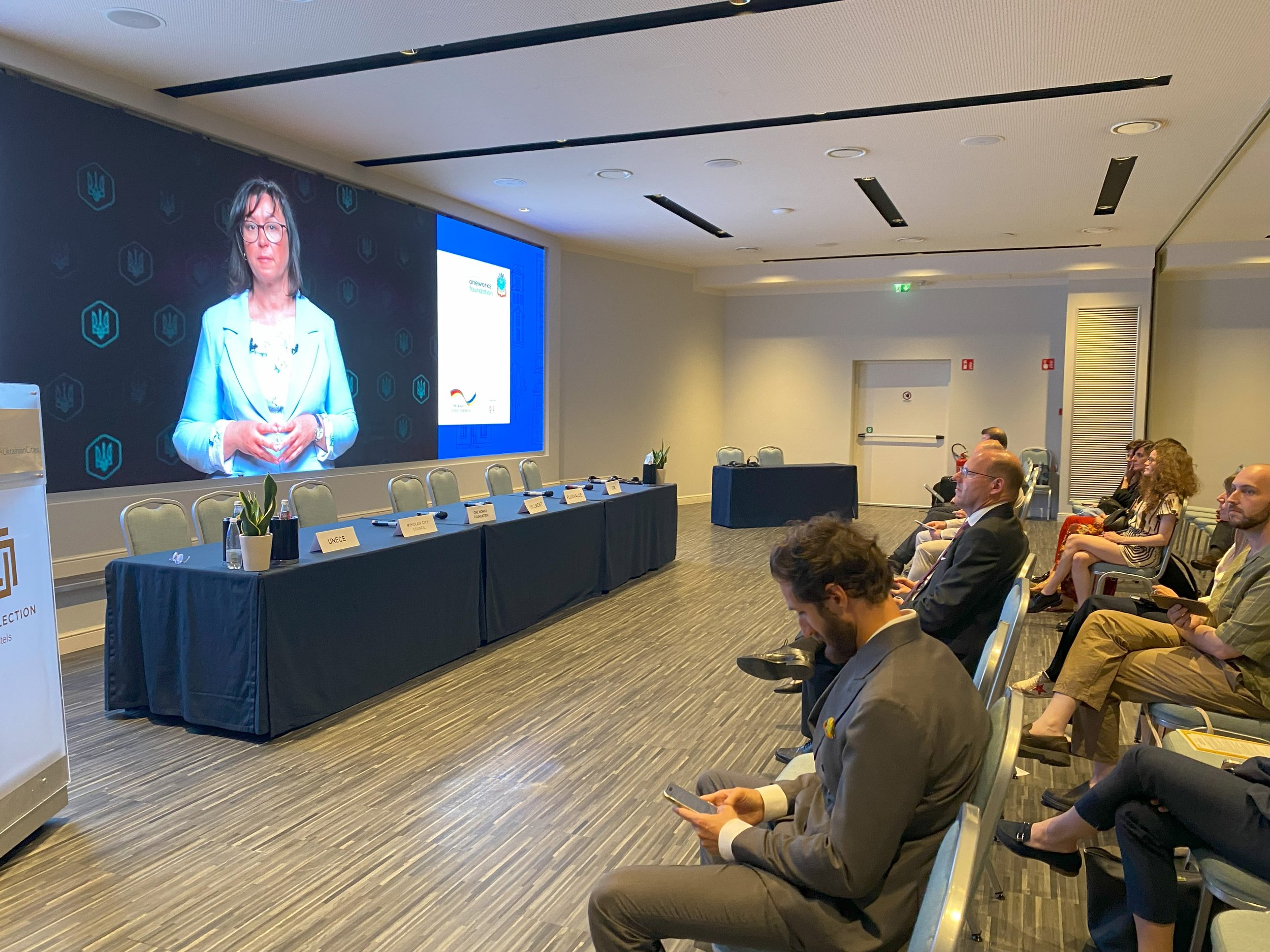

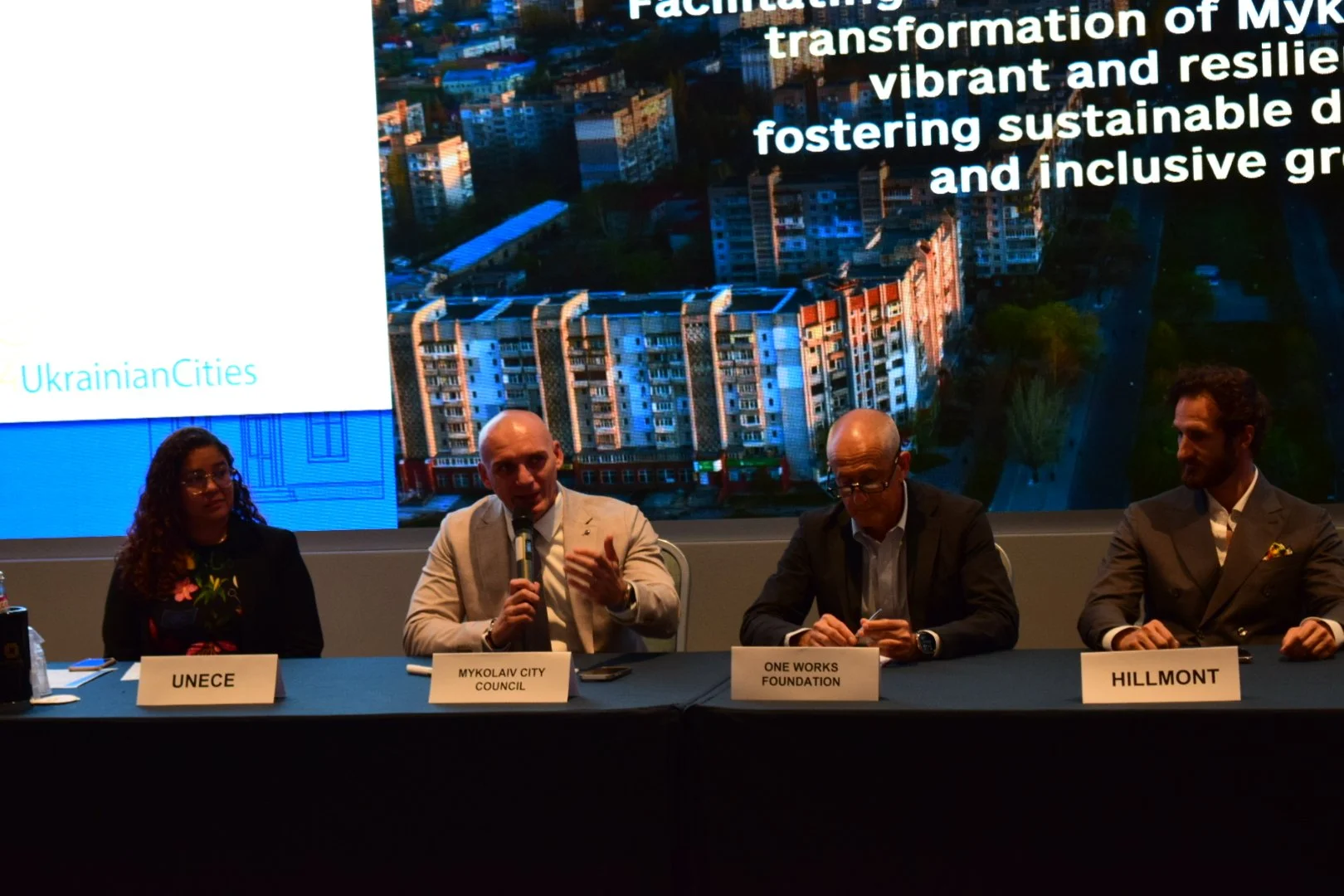
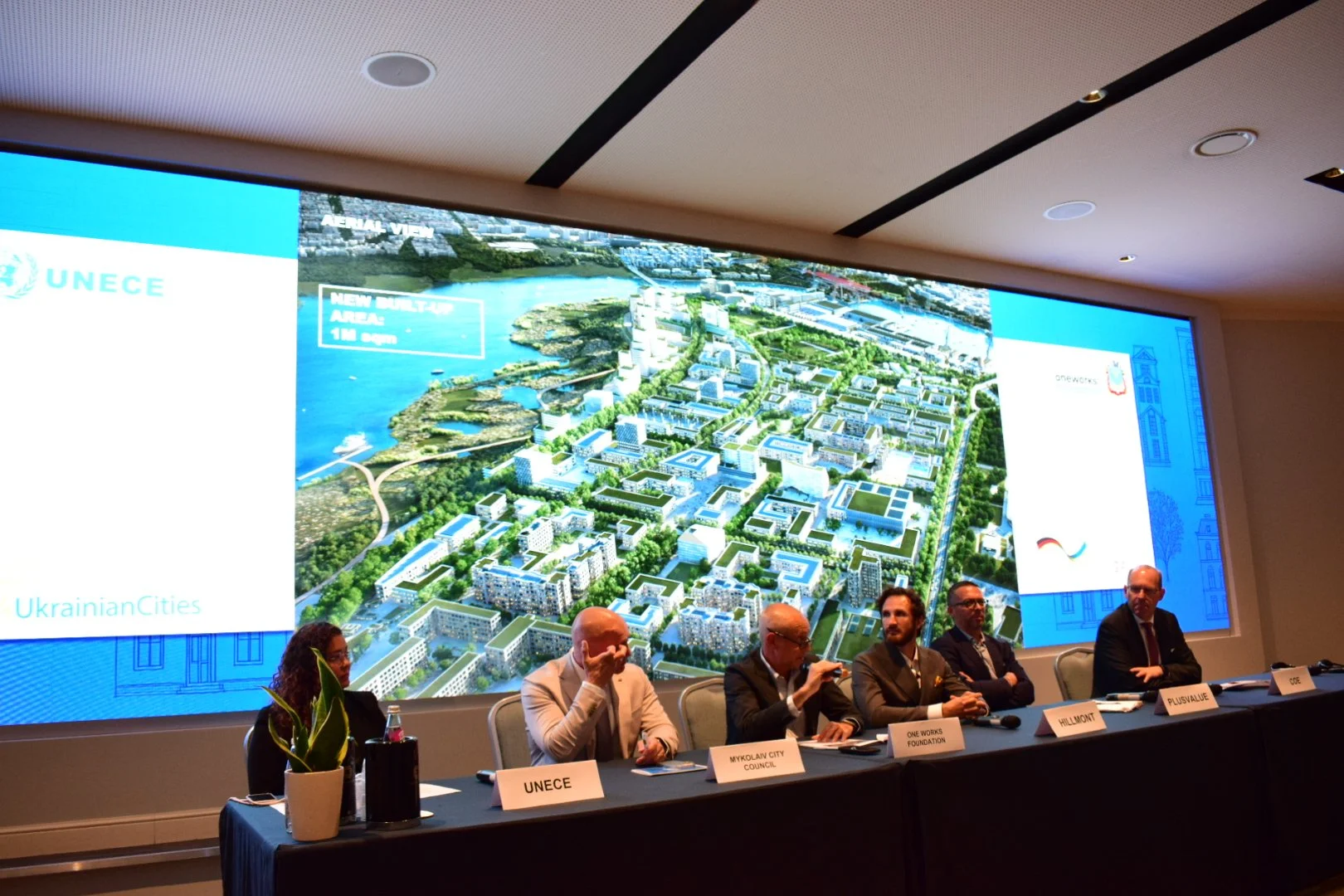



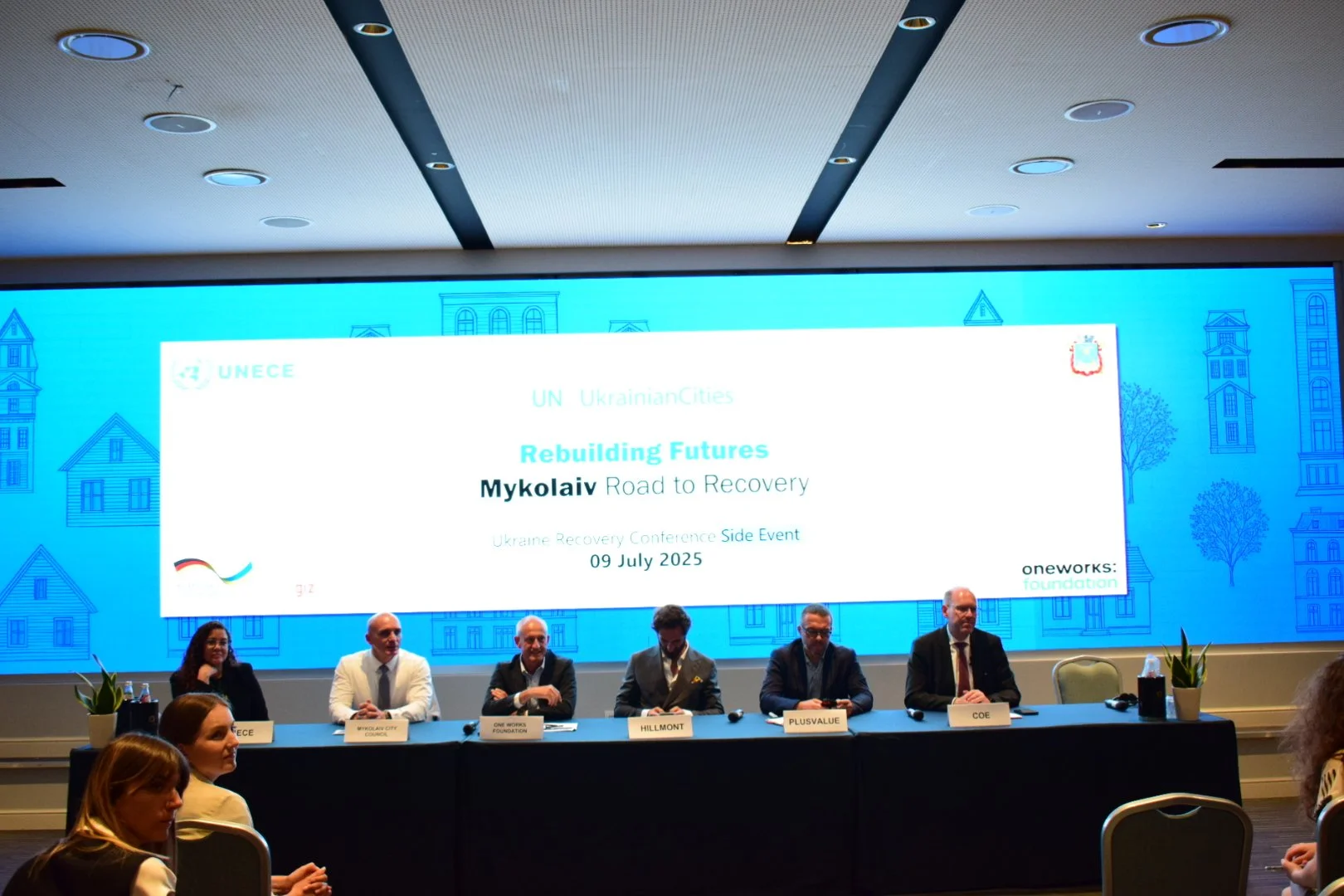




Ukraine Recovery Conference (URC2025): A Broader Vision for Recovery
Urban recovery has been a central pillar of UNECE’s support to Ukraine since the start of the war. Building on the momentum of the UN4UkrainianCities side events that happened on 9 July, UNECE Executive Secretary Tatiana Molcean took part in the high-level panel “A Path to Modern, Safe and Sustainable Cities” at the Ukraine Recovery Conference on 11 July.
Speaking alongside Minister Oleksii Kubela (Ministry for Development of Communities and Territories of Ukraine), Mayor of Kharkiv Ihor Terekhov, UN-Habitat Executive Director Ana Claudia Rossbach, and other international partners, Ms. Molcean presented UNECE’s work in Kharkiv and Mykolaiv as examples of integrated urban recovery. The discussion emphasized the importance of data-driven planning, feasibility studies for key urban zones, international architecture competitions, and city-wide spatial strategies. Flagship pilot projects—such as the Science Neighborhood in Kharkiv and the Innovation District in Mykolaiv—were showcased as scalable models that link local action with national policy reform and long-term sustainability.
Key milestones include:
The development of new concept master plans in both cities
Pilot implementation of housing regeneration and city-wide spatial strategies
UNECE’s support for the draft Law on the Fundamental Principles of State Housing Policy, now under parliamentary review and the State Housing Policy Strategy, launched in June 2025 by the Ministry for Development of Communities and Territories of Ukraine.
“Cities like Kharkiv and Mykolaiv are not just rebuilding; they are reimagining urban futures, with vision, planning, and international engagement, recovery becomes a moment of transformation.”
As Ukraine’s reconstruction accelerates, the UN4UkrainianCities initiative continues to demonstrate how data, design, and dialogue can drive sustainable recovery: one pilot, one partnership, and one resilient city at a time.
